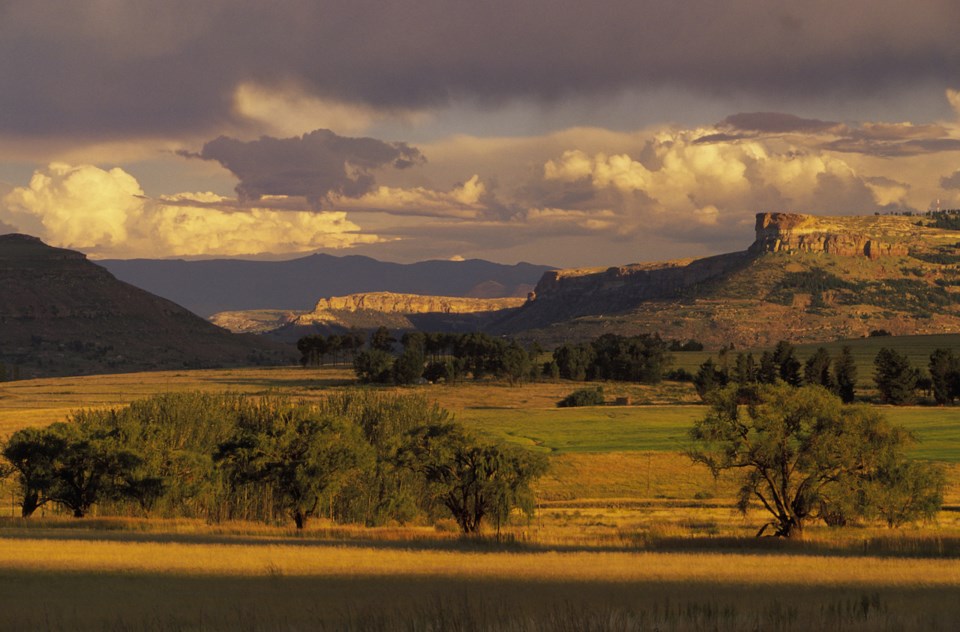The tiny African nation of Lesotho is deeply implanted in my heart.
It is the country of my second son and is in my thoughts often. Now, the future of Lesotho has become my passion.
Adoption had been our plan for years. Our family was matched with a little boy just before Christmas, 2019. The paperwork was completed – and he was officially our adopted son – three days after Southern Africa closed their borders to travel because of COVID-19.
We waited anxiously for seven months.
Finally, Lesotho and South Africa briefly dropped their travel restrictions. One day later, I flew into Johannesburg, crossed the border into Lesotho, and the next day met my boy.
The plan had always been for our entire family to go meet our new son, spend quality time together as a united family, travel together and bond. COVID-19 changed all that. There were so many unknowns about travel. We felt it safer and more realistic that I would go alone and bring our boy home. My new son and I lived together for a month both in Lesotho and then in Johannesburg, waiting on visas and travel documents before we finally flew home.
In our time together in Lesotho, my boy and I had a spectacular time – getting to know each other and getting to know his country. We were absolutely spoiled: with the travel restrictions, there were absolutely no foreigners in the country at all and we got to meet so many of the locals and really discover the country.
Here are some of the things that affected me the most:
The tiny nation of Lesotho is a survivor.
It has maintained its independence through colonialism and stayed separate from South Africa, particularly through the Apartheid era.
The people are generous, open-hearted and absolutely welcoming
And the country is very, very poor.
Lesotho is a deeply suffering country, afflicted by overwhelming poverty (two in five people live on less than $1 a day) and extreme disease (more than one in four people are HIV positive). Statistics like these can often be overwhelming. So I try to impress only one statistic on people: in a nation of 1.9 million people (less than the population of the Greater Vancouver area) there are an estimated 300,000 orphaned children. That is an outstandingly difficult statistic to avoid. To put it in perspective, Canada has a population of 38 million with only 45,000 orphans.
Here’s something else that affected me deeply: Beautiful Gate Orphanage is doing the absolute best that they can. They successfully give many children in Lesotho the opportunity to be more than just one of these statistics. They strive to give them the opportunity to be children…and give them a chance at life, ultimately hoping to find them adopting “forever families” in Lesotho and abroad. My son is healthy, lively, happy and simply a wonderful charming young boy because of the great work Beautiful Gate does.
However, the orphanage is at capacity and only mandated to take care of children up to the age of six. After that age, the children are forced into the foster system, a system that is broken and unmanageable. It is failing these kids, who very often end up victims of human trafficking or child labour. Despite being one of the smallest nations by population in the world, it sadly stands as second in the world for child human trafficking.
And this is what affected me most. These kids aren’t even getting the chance at a good life.
Then, when meeting with the owners of Beautiful Gate, I found out there was an answer to this horrific system, just waiting to happen: the Peka Project. Through generous donations, Beautiful Gate was able to purchase land in Northern Lesotho. Peka is a rural property to accommodate a new childcare centre and will be a working farm, school, and home to cater to children six years old to adulthood.
They also plan on creating a more focused care and development program for children with special needs.
Peka is a chance to give some of the children of Lesotho a safe and loving environment to grow up, learn, and develop the skills to become productive and flourishing young adults. Peka is a way to give the un-adopted children of Lesotho a chance at a successful, healthy and happy life and a way for them to help re-invest and build their country.
My friends Park and Charmaine have generously come on board to help Peka. They are donating a hundred per cent of their proceeds from their annual Memphis Blues meat drive to support the project.
Bowen Islanders can help raise funds and enjoy Memphis Blues BBQ meat. The Rotary Club of Bowen has been a huge supporter of the Peka Project and have offered their online shop as a means to order and pay. To place your order for Memphis Blues BBQ, please go to shop.bowenrotary.com/peka-project-memphis-blues/
There is even a button to add a further contribution if you feel inclined to donate and are vegetarian. The cut off for ordering is Sunday, April 18 at midnight.
If anyone is interested more in getting involved with the Peka Project, whether through private donation, or volunteering skills in some way, I am always available to talk at [email protected].
Thank you all for your support.



